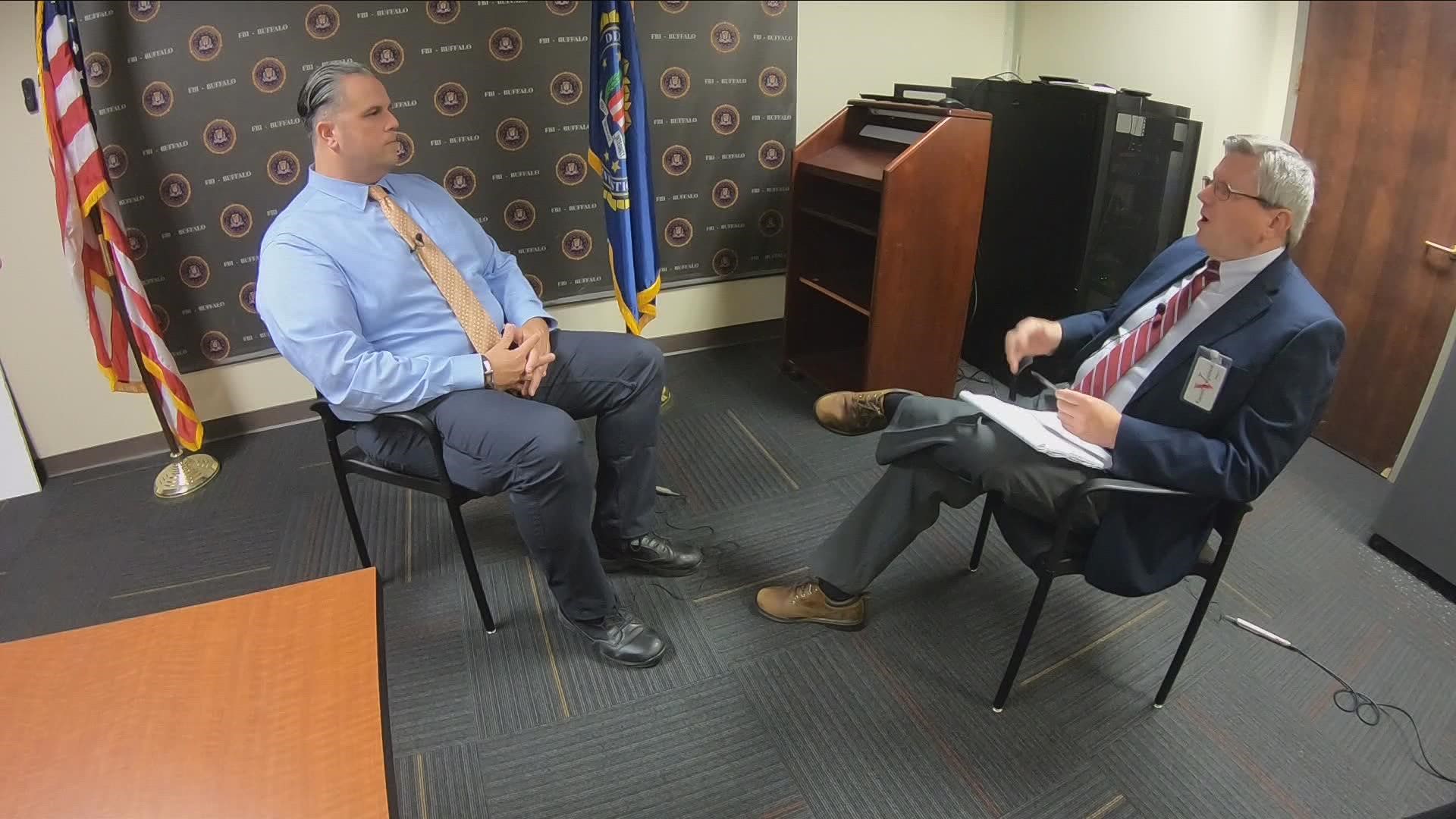BUFFALO, N.Y. — With more recent child pornography cases and some high profile court proceedings against those who are charged, we wanted to get some updated understanding on what investigators here in Western New York are seeing with these pervasive and terrible crimes against children.
For five years now, Town of Tonawanda Detective Eric Schmidt and his federal and local colleagues on the FBI operated Western New York Child Exploitation Task Force have tracked and traced the digital footprints and fingerprints of those adults who collect, distribute and produce child pornography.
Detective Schmidt told 2 on Your Side, "Our office - we've got right now over 100 open investigations for the five of us."
This task force at the Buffalo FBI office works with similar task forces around the country and around the world. Because unfortunately these images travel internationally and they can linger for years.
Arrest and prosecution can be a lengthy process as we're seeing right now with the case of former Buffalo City Honors teacher Peter Hingston and so many others here and nationwide. Some suspects have been in very trusted positions as educators, coaches, clergy, executives, politicians and people who some parents trust to be babysitters. Even an FBI Electronics Technician was arrested for a child porn case in Tennessee.
And it's truly disturbing to hear about some of their potential targets, Schmidt said with disgust.
"We've seen victims as early as newborns," he said.
Perpetrators can build up an online relationship. Schmidt says they usually start with casual contact with a child.
"They'll ask for images - sometimes it will start off as a simple image - maybe just a face shot or full body shot in the mirror. And they'll get a little more aggressive about it - and ask for images of their naked bodies."
Then Schmidt says they can go to sextortion.
"We've had cases where when images of the child have been sent to the perpetrator - the child then does feel some remorse and they wanna stop. And the perpetrator will attempt to shame them or extort them for money in some instances where they say 'I have these pictures. I have these friends of yours. Send me money or I will release the photos.'"
Or worse. NBC News reports - quoting law enforcement - that an estimated 55% of such cases progress from online to actual sexual contact.
And yes, the COVID shutdown of schools and workplaces had an impact according to Schmidt.
"We had children that were in school several hours a day - now home almost 24 hours a day. And perpetrators home as well from work, from school. So we definitely saw a spike in the crime."
Schmidt warns that even an adult posing as another kid can seek access to or just troll online for potential victims.
"They will build up a friendship first and gain a child's trust. That's usually what they'll do - they'll find like interests of the child and they can do just by going through the child's social media accounts."
Schmidt points out kids may be online so much and on various platforms that perhaps are unknown to parents.
"They're friending people that they never met in their life. You see some kids with two and three thousand friends. And that's where it can get dangerous - communicating with people you've never met before."
With elements of the very dark web, child porn perpetrators sell, share and trade potential young victims contact info and their images which could go around the world for years.
But Detective Schmidt notes sometimes someone steps up.
"Sometimes we'll actually have the child or a friend of the child come forward on behalf of the child. Parents are still notified of the investigation. We try and get our victims specialist here at the FBI to work with the child and the family."
So now parents should listen up to these points, which some have heard before, to protect their kids.
Schmidt suggests, "Stay involved in your child's online activities. Know your child's passwords on their phones. Know who they're communicating with online whether it's on their phones or playing video games. Know what platforms they're on - know if you're child has an Instagram account, Snapchat account, Discord account, TikTok account. Know those things."
For more information and tips you can go to the FBI's Safe Surfing Online website for parents and kids. There is a similar FBI website for teachers and students.
And the National Center for Missing and Exploited Children can also offer valuable information on this terrible topic.
One last point. Detective Schmidt says they do provide outreach programs to schools. He says most people assume they start with students in middle school grade levels. But Schmidt says parents should start talking about this issue with kids in the elementary grade levels as well.
While some may question if it is age appropriate, Schmidt explains younger kids are very knowledgeable on computers and phones and you can't start too early to warn them about such on-line dangers.

